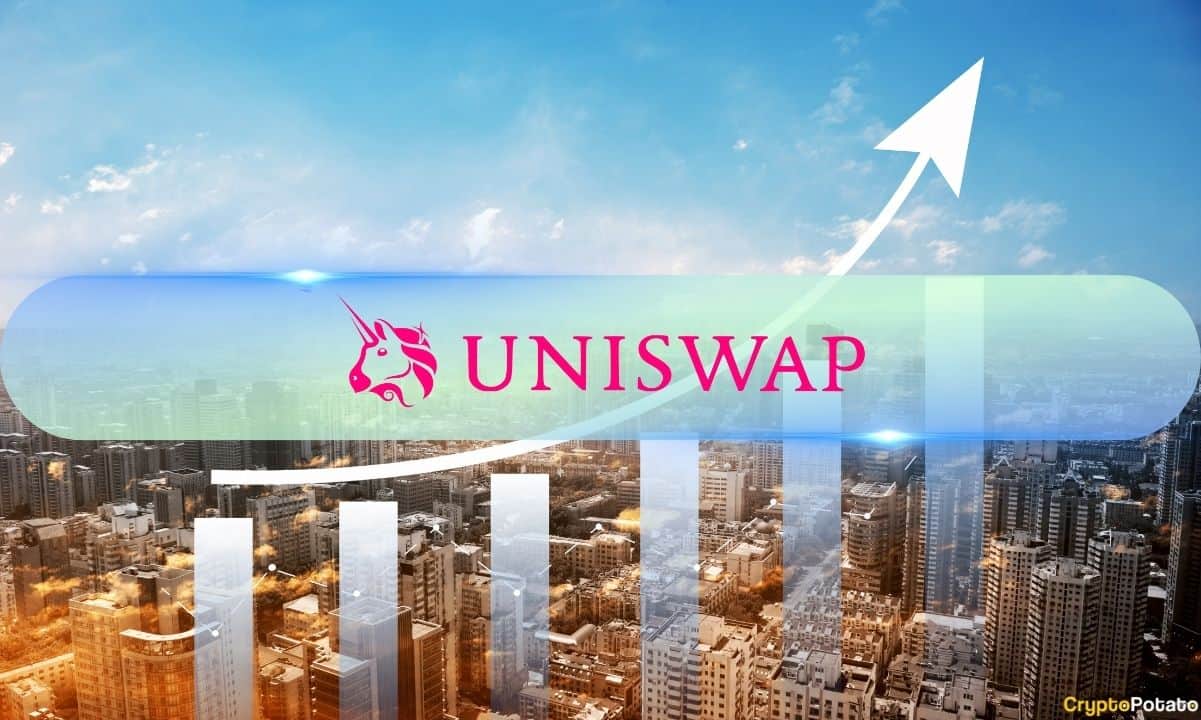Uniswap Reclaims Crown: Dominates DEX Market Amid PancakeSwap’s Stunning Decline

Uniswap surges back to dominance as decentralized exchange volatility reaches fever pitch.
Market Shakeup
The DEX throne has a familiar occupant again—Uniswap just bulldozed through competitors while PancakeSwap's metrics nosedive. Trading volumes swing wildly as liquidity shifts between chains, proving once more that crypto markets change direction faster than a hedge fund manager's moral compass.
Platform Dynamics Shift
Users flock back to Uniswap's established infrastructure despite higher gas fees, while PancakeSwap's multi-chain strategy shows cracks. The move signals deeper market preferences—sometimes traders prefer the devil they know over shiny new alternatives.
Volatility as Feature, Not Bug
This seesaw action between top DEX platforms underscores decentralized finance's relentless evolution. Protocols rise and fall like speculative bubbles—today's darling becomes tomorrow's abandoned codebase.
Just another week where decentralized protocols outperform traditional finance in both returns and drama.
Uniswap Strikes Back
According to the latest report shared by CoinGecko, this resurgence allowed Uniswap to recover from its June low, when its market share had fallen to 19.4%, overtaken by PancakeSwap amid the latter’s surge driven by the Binance Alpha 2.0 launch. The rewards program boosted PancakeSwap’s activity, which helped it achieve record daily trading volumes of around $5 billion and a peak market share of 64.5% in June.
However, August told a different story as PancakeSwap’s trading volume plummeted to $92.0 billion. This was a sharp 44.7% decline from July, which reduced its market share to 29.5% and allowed Uniswap to retake the top spot.
Aerodrome secured its position as the third-largest DEX in August while capturing 7.4% market share. It recorded almost $23 billion in trading volume, which marks a 28% month-on-month increase. The remaining top 10 decentralized exchanges collectively accounted for 27.3% of the market.
Meanwhile, the DEX ecosystem continues to evolve rapidly, with newcomers like Hyperliquid making notable gains. Hyperliquid’s August volume surged 129.3% month-on-month to $21.4 billion, pushing its market share to 6.9% and elevating it to the fourth-largest DEX. In the process, it surpassed several Solana-based platforms.
While still far behind Uniswap and PancakeSwap, Hyperliquid’s rise evidences the increasingly competitive nature of the DEX sector.
UNI’s Volatile Trajectory
Uniswap strengthened its market dominance, but the same can’t be said for its governance token, UNI, which experienced significant volatility over the past month, forming a local top above $12 in mid-August before suffering back-to-back corrections.
The token showed strong upward momentum through August but has faced selling pressure in recent weeks, with the price consolidating in the $9-10 range through early September.
Despite the turbulence, Bitwise CIO Matt Hougan noted that UNI at $6 billion is modest by global standards, and compared it to Storebrand, which happens to be a mid-sized Norwegian insurance firm. He added that despite its DeFi prominence, its valuation remains relatively small in the broader financial landscape.

